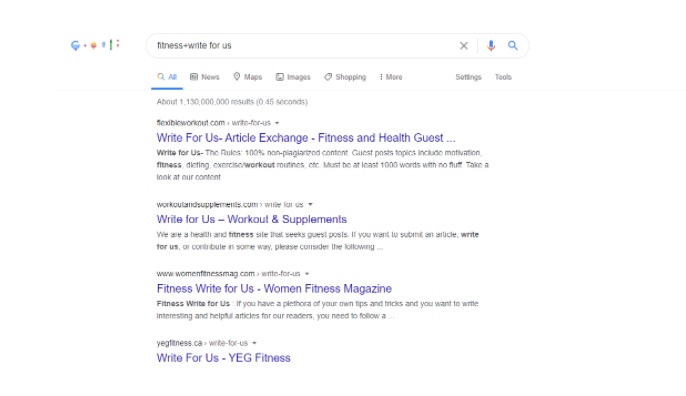Although the grammar and spelling are not currently used by Google as a direct signal for ranking site quality, it may influence other factors that determine page rank. For example, if a user visits a site and finds grammar and spelling mistakes then the user will immediately leave the site. This will affect the bounce rate which is a contributing factor to page rank.
In a web query with Matt Cutts from Google, he explains that sites considered reputable by Google tend to have better spelling than poorer ranking sites. This is likely due to the fact that poorly written content generally doesn’t get read and typically only appears on low-quality sites. Poor copywriting can also hurt SEO strategies to share content and get links back.
What is Syndicated Content for SEO?
Content syndication is the process of republishing your content on third-party sites. It seems similar to guest posting. But there is a difference between both. Content syndication is scalable. Initially you just write a post and publish it on your blog. After that, you can take this blog and publish it to several other blogs.
On the other hand, guest posting is not scalable. Once you write a guest post for a popular blog in your niche, the post just sits there.
The disadvantages of syndicated content:
- Duplicate content issues: When you try to implement content syndication, duplicate content is the main issue. While you take your blog post that is already published and republish it on third-party sites the issue of duplicate content may arise.
- Outranking your own content: Suppose Lifehacker chooses to republish your blog post. Now, if someone looks for it, it’s very possible that Google shows the Lifehacker version first rather than yours. So, your republished post could beat your original blog post.
- Can not collect email: You can’t collect emails because none of the big publishers will allow you to add your email opt-in widget to their site. So, while you get exposure, you can’t use it to build your email list.
While web content syndication has its share of issues, it can still be an indispensable tactic to get massive exposure. And, you can do it without worrying about screwing up your site’s SEO.
Steps for SEO-friendly content syndication
- Start guest posting: The first step is guest posting. You can create a new blog and start content syndication. Your content should be fresh and unique. To find the sites for guest posting that are relevant to your blog, search for them along with your keyword and use any string from the following:
- “Guest post”
- “Contributing writer ”
- “This is a guest post by”
- “Contribute to our site”
- “Guest posting guidelines”
- “Suggest a post”
- “Contributor guidelines”
- “Guest posts wanted”
- “Writers wanted”
- “Write for us”
For instance, if you have a blog post for fitness, look for the keyphrase: fitness+write for us.

These sites in the above picture allow you for guest posting.
- Select web content syndication partners: there are a lot of sites that are open to content syndication. Keep in mind the bigger the blog, the higher the quality standard.
While there are quite a few niche content syndication sites, the most popular ones only publish content about marketing. If you feel that your content doesn’t fit directly with any of those, give your content a twist and you can still manage to get republished on most sites.
- Reach out to the shortlisted web content syndication partners: You must check if the target sites are open to guest posts before submitting any content. To do so open a few blog posts and see if they’re all originally published on the site or have an attribution message.
- SEO-proofing: We already discussed that content syndication can create issues of duplicate content. Google acts content syndication as “If you syndicate your content on other sites, Google will always show the version we think is most appropriate for users in each given search, which may or may not be the version you’d prefer.”
Since you do not know which version Google will choose to rank high, there is a possibility that you can get outranked on search engine result pages for your original content. If syndicating posts gets highly converted then things can get worse.
But you can use the two methods to avoid this:
- rel=canonical tag: This is the best way to deal with the duplicate content issues. When you use a canonical tag on the posts or pages you provide Google the original source of content.
- Noindex: When a post(page) is tagged as “NoIndex,” Google’s search engine bots don’t index it. And, when a blog post is not indexed, it won’t show up in the search engine results.
SEO Content That Provides Value & Insight
Content provides value and unique insights It is very helpful to provide unique and valuable content to your audience. Unique content is straightforward enough, but what this unique content actually means? What is required to make this unique content? Let's discuss...
What are WordPress tags for SEO?
WordPress tags and categories play a vital role in organizing your site’s posts properly. They can help you to increase the web traffic, boost your page views, and offer a great experience to your potential customers. With the proper use of tags and categories, you...
HTML Errors/ W3C Validations
Lots of HTML errors or sloppy coding may be a sign of a poor quality site. While controversial, many in SEO think that a well-coded page is used as a quality signal. 6 reasons why Google advice to validate your html Valid HTML and crawl rate: In Google search console...




